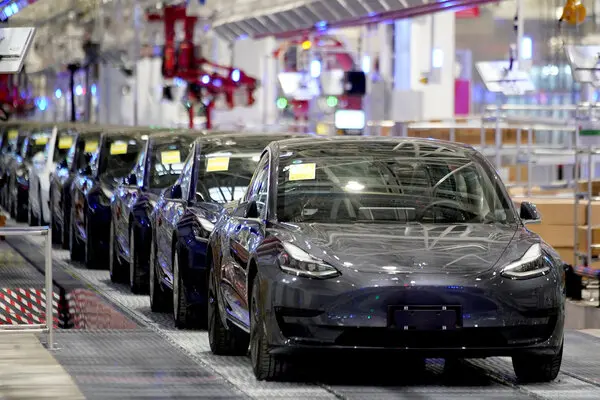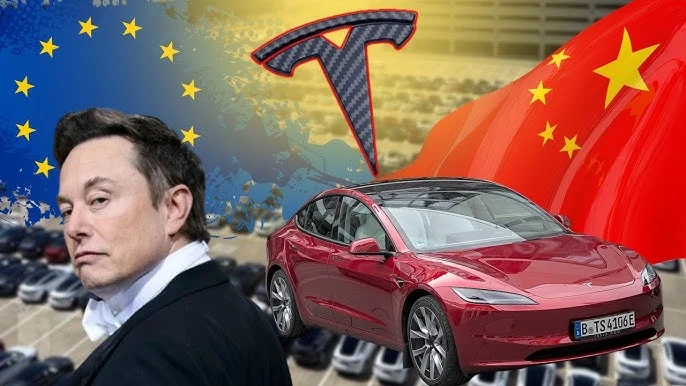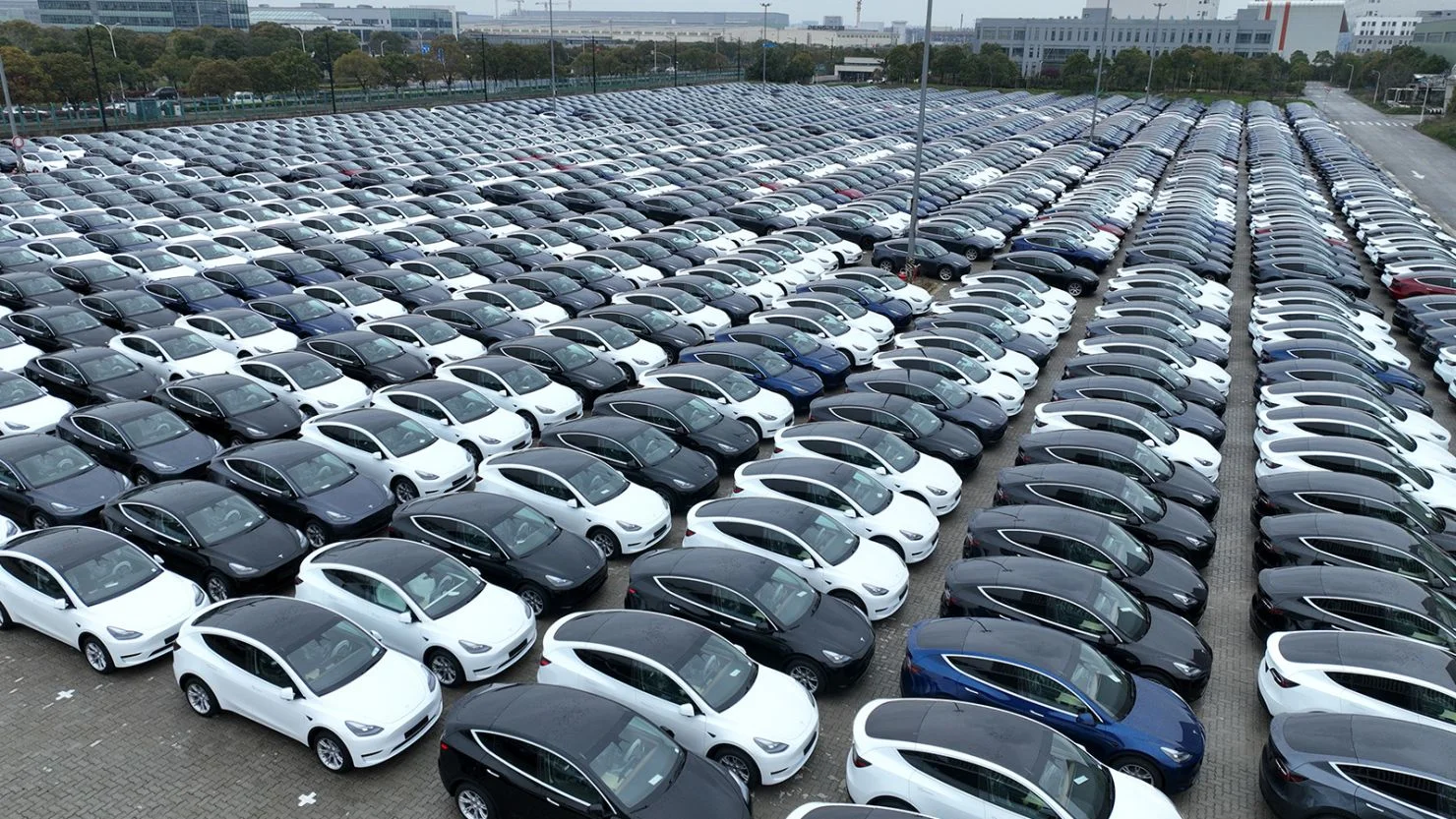Introduction
The European Commission has made headlines with its ongoing investigation into electric vehicles (EVs) imported from China. The focus is on determining whether Chinese manufacturers, including Tesla’s Shanghai-based operations, have benefited from state subsidies, potentially distorting competition within the European Union (EU). This article delves deep into the intricacies of the European Commission’s proposed countervailing duties, the specific tariff rates, and the broader implications for the global EV market.
A New Chapter in the EU-China Trade Relationship
The European Commission’s investigation into Chinese EV manufacturers marks a significant moment in EU-China trade relations. With the rise of electric vehicles as the future of transportation, the stakes have never been higher. European automakers have expressed growing concerns over the competitive edge that Chinese manufacturers might gain through state subsidies. But what does this mean for the global automotive landscape?
The Role of State Subsidies in the Global EV Market
State subsidies have been a contentious issue in global trade, particularly in sectors like electric vehicles where innovation and sustainability are key drivers. Chinese manufacturers have allegedly received substantial government support, allowing them to offer EVs at lower prices in foreign markets. But is this support distorting the competitive landscape? The European Commission’s investigation seeks to answer this very question.
The European Commission’s Tariff Proposal: A Closer Look
The European Commission has proposed new countervailing duties on EVs imported from China. This proposal includes specific tariff rates for companies like Tesla, BYD, GAC Group, and SAIC Motor Corporation. The commission’s decision highlights its concerns about the potential impact of state subsidies on competition within the European EV market. But how will these tariffs affect the dynamics of the market?

Tesla’s Lower Tariff Rate: A Game-Changer?
One of the most notable aspects of the European Commission’s proposal is the significantly reduced tariff rate for Tesla. Initially facing a provisional duty rate of 20.8%, Tesla has successfully secured a much lower rate of 9%. This reduction came after Tesla requested an individual examination and provided detailed documentation to substantiate its claim of lower subsidies. But what does this mean for Tesla’s future in Europe?
The Implications of Tariff Rates for Chinese EV Manufacturers
Chinese EV manufacturers like BYD, GAC Group, and SAIC are facing higher tariff rates, with BYD at 17.7%, GAC Group at 19.3%, and SAIC at 36.3%. These rates reflect the European Commission’s concerns about the level of state support these companies receive. How will these tariffs impact their pricing strategies and market penetration in Europe?
The European EV Market: A Battleground for Global Automakers
The European EV market is becoming a battleground for global automakers. With the proposed tariffs, the European Commission aims to level the playing field and protect European manufacturers from unfair competition. But will these measures be enough to ensure the growth of the European EV industry?
Tesla’s Strategic Position in the European Market
Tesla’s Shanghai Gigafactory plays a crucial role in the company’s European operations, serving as its primary export hub for EVs. With the reduced tariff rate, Tesla is poised to maintain its strong market position in Europe. But what challenges lie ahead for the company as it navigates the complex regulatory landscape?

The Broader Implications of the European Commission’s Investigation
The European Commission’s investigation is part of a broader strategy to address concerns about state-supported Chinese manufacturers. The outcome of this investigation could have far-reaching implications for the global EV market. How will this investigation shape the future of the industry?
The Competitive Landscape: European vs. Chinese Automakers
The competition between European and Chinese automakers is intensifying as the global shift towards electric vehicles accelerates. The European Commission’s proposed tariffs are just one of the many factors that will influence this competition. But who will come out on top in this high-stakes battle for market dominance?
The Future of EU-China Trade Relations in the EV Sector
The ongoing investigation and proposed tariffs could strain EU-China trade relations, particularly in the EV sector. As both regions vie for leadership in the global transition to sustainable transportation, how will their trade policies evolve?
The Role of Regulatory Bodies in Shaping the EV Market
Regulatory bodies like the European Commission play a pivotal role in shaping the EV market. Through investigations, tariffs, and other measures, they influence the competitive dynamics of the industry. But are these measures sufficient to foster fair competition and innovation?
The Impact of Tariffs on EV Prices in Europe
Tariffs are likely to impact the prices of EVs in Europe, potentially making Chinese-made vehicles more expensive for consumers. How will this affect consumer behavior and the overall demand for electric vehicles in the region?
The Global Shift Towards Electric Vehicles
The transition to electric vehicles is a global phenomenon, driven by the need for sustainable transportation solutions. As countries and regions adopt policies to support this shift, what role will trade investigations and tariffs play in the global EV market?
Tesla’s Growth Strategy in Europe
Tesla’s growth strategy in Europe has been largely successful, thanks in part to its Shanghai Gigafactory. With the reduced tariff rate, the company is well-positioned to continue its expansion. But what are the potential risks and opportunities ahead for Tesla in the European market?
The Role of Innovation in the EV Market
Innovation is key to success in the electric vehicle market. Companies that can develop advanced technologies and offer competitive products are likely to lead the industry. How are Chinese and European automakers leveraging innovation to gain a competitive edge?
The Importance of Fair Competition in the EV Industry
Fair competition is essential for the growth and sustainability of the EV industry. The European Commission’s investigation is a step towards ensuring that all players compete on a level playing field. But how can fair competition be maintained in a rapidly evolving market?
The Strategic Importance of the European EV Market
The European EV market is strategically important for global automakers. With high demand for electric vehicles and strong government support for green transportation, Europe is a key battleground for market share. How will the proposed tariffs influence the competition in this crucial market?
The Potential for Future Trade Disputes in the EV Sector
The ongoing investigation into Chinese EV manufacturers could lead to future trade disputes between the EU and China. As both regions seek to protect their industries and promote sustainable transportation, what challenges lie ahead in their trade relations?
The Role of Government Policies in Promoting Electric Vehicles
Government policies play a critical role in promoting the adoption of electric vehicles. From subsidies to tariffs, these policies can significantly impact the market. How are different regions leveraging policy tools to support their EV industries?
The Challenges Facing European Automakers in the EV Transition
European automakers face numerous challenges as they transition to electric vehicles. From competition with Chinese manufacturers to regulatory hurdles, how are they navigating this complex landscape?
The Future of State Subsidies in the Global EV Market
State subsidies have been a key factor in the growth of the EV market, particularly in China. But as the industry matures, will these subsidies continue to play a significant role, or will market forces take over?
The Role of the European Commission in Shaping the EV Market
The European Commission’s actions, including its investigation into Chinese EV manufacturers, are shaping the future of the EV market. But what other measures might the Commission take to promote fair competition and innovation in the industry?
The Impact of Tariffs on the Global EV Supply Chain
Tariffs on Chinese-made EVs could have ripple effects throughout the global supply chain, impacting everything from raw materials to finished vehicles. How will these tariffs influence the dynamics of the global EV supply chain
All images credit goes to google

